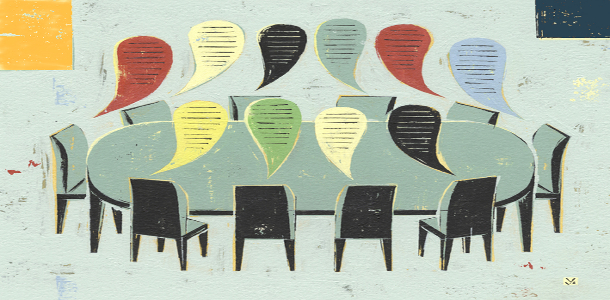




15 signs you might be a word nerd
Do you have more than one style guide on your desk? Are you the one person in your company others call when they have a grammar question? That book you read before you go to bed at night—how many typos have you found in it? If you answered yes to the first two questions and more than 10 to the second question, you might be a word nerd. Never fear; no one here will make fun of you. PR Daily readers are a group of like-minded people who—though they have different interests and opinions—share an appreciation for the power and subtlety of words. Still not quite sure if...

7 more confusing word pairs
In a previous post, I discussed the distinctions between word pairs such as comprise and compose and imply and infer. The English language is full of problematic word pairs; here are seven more to note. Oral and verbal “Oral” means by mouth and should be used when referring to spoken language. It is more precise than verbal. • Example: The incident was mentioned in an oral report to her supervisor. “Verbal” means with words, either written or spoken. • Example: Patrick O’Brian is a verbal virtuoso. Complement and compliment “Complement” means to add to...

Posted by laurajane on Nov 9, 2011 in Uncategorized | Comments Off on Careful, writers! 10 common words with opposite meanings
Careful, writers! 10 common words with o...
The English language is full of words with uncommon properties. There are backronyms, metaplasms, and neologisms. My favorite words of unusual properties are contranyms, or words that are spelled the same, but have two opposite meanings. These words are also known as Janus words, named after the Roman god of gates and doorways and of beginnings and endings. Janus words teach us the importance of context and bring a whole new meaning to the phrase “use it in a sentence.” Here are a few examples: Oversight. It can mean watchful care or an error or mistake. Example:...

Posted by laurajane on Nov 2, 2011 in Uncategorized | Comments Off on 8 tips to make the writing process easier
8 tips to make the writing process easie...
No one who writes for a living will tell you that they actually enjoy writing. It’s tedious and soul-crushing to stare at a blank computer screen, knowing what you want to write but being unable to call up the proper words. Canadian author Ann-Marie MacDonald describes it aptly: “Writing is a hellish task, best snuck up on, whacked on the head, robbed, and left for dead.” This year, I was asked to lead a workshop on writing for non-writers. Participants were of varying experience levels, so I spent the majority of our time discussing how to make the writing process...

Put that jargon to good use . . .
Looking for a way to make all those meetings less mind numbing? Turn them into a creative, brain-building exercise with a game I call Word Quest. The only thing you need to play is an accomplice. For Word Quest, you and your accomplice pick one clichéd, meaningless business term—such as managing expectations—and see who can be the first to use that term in a meeting. That person earns the most points. Bonus points are given if you get someone else (not your accomplice) to say the term in the meeting. Of course, you can give extra points for style when someone...

17 haikus about writing and editing
As a professional writer, I am always looking for ways to keep my writing fresh. Over the past several months, I’ve experimented with constrained writing. And it’s just what it sounds like—imposing specific conditions on writing, such as disallowing certain types of words or writing to a specific pattern. (In college, for instance, we once had to write a paragraph without any prepositions.) Writing to a pattern means I can’t simply use the first words that I type on the screen. I have to stretch to find words that fit the pattern; they’re writing exercises...













